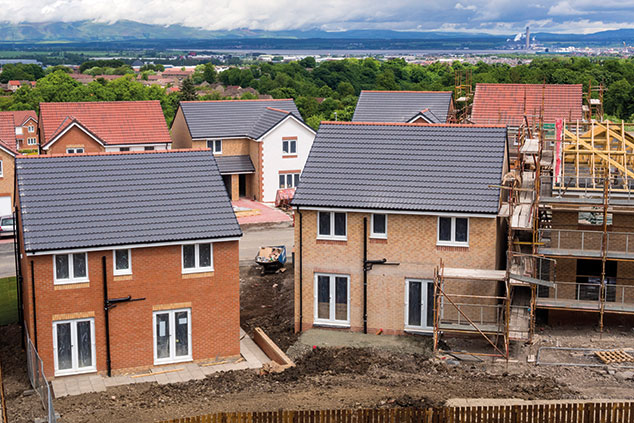
A new homes ombudsman will be launched to help homebuyers who face problems with their newly built houses. The new body, announced at last week’s Conservative party conference, will champion the rights of homebuyers and hold developers to account when things go wrong with new builds. This statement has attracted a little controversy, given that an ombudsman is supposed to be impartial. New legislation will require all new developers to belong to an ombudsman scheme, with more detailed proposals to be published in due course.
Nobody likes their new-build house
The problem of people with new-build houses being dissatisfied with the quality of their property is a significant one. In 2017, more than half of the buyers of new houses experienced major problems with their residence, according to a survey carried out by housing charity Shelter. In June this year an All Party Parliamentary Group (APPG) concluded that house builders “were too frequently handing over poor-quality homes because they could get away with doing so”. It called for the appointment of an ombudsman to provide people with a straightforward way of getting problems resolved quickly.
The current situation is a mess. Affected house buyers are not just exasperated by the existence of defects in their new house, but also by builders’ failure or refusal to put the defects right, said the APPG. Unfortunately, it is difficult for homeowners to find out what is covered by a warranty – “far less than consumers assume” – with people facing a confusing array of warranties, housebuilding codes and complaints procedures, each offering something slightly different.
Under today’s rules, it is up to your housebuilder to sort out defects during the first two years after completion. After that, warranties provide insurance cover for any failures to meet building regulations. This should last for ten years from the date you completed on the property. It is the house that is covered for ten years, rather than the person, so cover should be passed on to new owners when the house is sold.
Your builder or conveyancer should have confirmed with you whether your property has a warranty from the National House Building Council, Premier Guarantee or LABC Warranty, while you should also have been provided with a policy document and insurance certificate. During years three to ten, any warranty will only cover structural matters costing over £1,500 – minor defects are excluded.
What to do after a complaint
If you’ve complained to your builder, but you’re not happy with how your complaint was handled, you can ask to be referred to an independent dispute resolution service, says consumer group Which. You have three months from the date of your builder’s final response to your initial complaint in which to request a referral. Your home warranty body will then provide you with an application form and details of any evidence to submit. You will have to pay £100 to register your complaint. The maximum amount of money you can expect to be awarded is £15,000 including a maximum £250 for “inconvenience”, but you can’t make a complaint based on inconvenience alone. You are entitled to refuse the award, but if you pursue further legal action, the court is likely to take the adjudicator’s decision into account.